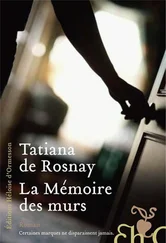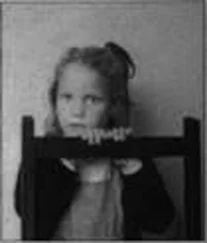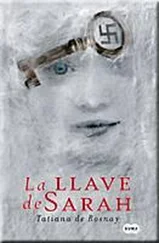Gone. All gone. He wondered what the year ahead would bring. And how he could possibly shake off this overpowering sadness. Never had he felt it more intensely than since his return to Noirmoutier. He could travel. He could take time off and go somewhere very far away, somewhere he had not been back to for years-China or India. But the thought of doing that alone put him off. He could ask one of his close friends, Hélène or Emmanuel or Didier. Nonsense. Who could take off a couple of weeks or a month in this day and age? Hélène was mother to three demanding children. Emmanuel worked in advertising and had the worst hours ever. Didier was a fellow architect and never seemed to stop working. Nobody could rush off to Asia at the drop of a hat.
Tomorrow was Mélanie’s birthday. He had made reservations at one of the best restaurants in Noirmoutier, L’Hostellerie du Château. One they had never been to, not even in the heyday of Blanche and Robert.
As he turned from his back to his stomach, he thought of the week ahead. People coming back to town after their vacation. Visions of bronzed faces in Parisian streets. The workload he had to face. The new assistant he had to find. The children starting school again. August slipping into September. And how on earth was he going to face another winter on his own?

During that terrible storm on the little one’s birthday I was afraid, as usual, but while they were all huddled in the candlelit dining room, you came to me in the dark, my love. The lights had gone out, but we did not need them. Your hands were like beams shining into me, glaring into me, almost white with their passion, and you took me to yet another level, where I had never been before, where my husband had never taken me, no one, do you hear, no one. I went back to them when the lights went on, and the cake came. I went back to my role as perfect wife and mother, but I was shining with your desire, coated with it, and she looked at me again, as if she suspected something, as if she knew. Listen, I am not afraid. I am not afraid of them anymore. I know that soon I will have to leave, go back to Paris, resume my everyday life, the avenue Kléber and its quiet, well-to-do atmosphere, the children…
I talk to you too much about my children, don’t I? But they are my little treasures. They mean the world to me. You know that expression, the apple of her eye? That’s what they are, my precious little angels, the apples of my eye. If life is to be with you, which is what I want more than anything else in the world, my love, then life is to be with you and them. The four of us. Like a little family. But is that at all possible? Is it?
My husband has canceled his trip here this weekend. Which means you can come to my room again, in the dead of the night. I shall be waiting. It gives me shivers, just imagining what you are going to do to me and how I shall take you.
Destroy this.

His sister was stunning tonight, her hair swept back, held by a black bow, her slender figure outlined by a simple black dress. His mother looking straight out at him from her eyes. But he didn’t tell her. That was his own private memory. He was pleased about the choice of the restaurant. A stone’s throw from Noirmoutier castle, it had looked deceptively simple from the outside, with its narrow porch and olive green shutters. The main room was vast, with a high, pointed ceiling, cream-colored walls, wooden tables, and a large fireplace, but he had reserved outside, on the small, intimate tented terrasse, where their table awaited them beneath a fragrant fig tree growing against a crumbling wall. There were no noisy families here, he noted, no squealing babies, no temperamental teenagers. The perfect place to celebrate Mélanie’s fortieth birthday. He ordered two flutes of rosé champagne, her favorite, and they quietly looked over the menu.
Foie gras poêlé au vinaigre de framboises et au melon.
Huîtres chaudes au caviar d’Aquitaine et à la crème de poireaux.
Homard bleu à l’Armagnac.
Turbot de pleine mer sur galette de pommes de terre ailées.
“This is really nice, Tonio,” Mélanie said finally when they had clicked their glasses together. “Thank you.”
He smiled. This was exactly what he had in mind when he planned this trip a couple of months ago.
“So how does it feel being forty?”
She grimaced. “Awful. Hate it.”
She gulped down her champagne.
“You look pretty damn good for forty, Mel.”
She shrugged. “Doesn’t make me any less lonely, Tonio.”
“Maybe this year…”
She sneered. “Yeah, maybe this year. Maybe this year I’ll meet a nice guy. I say that each year. The problem is, as we all know, guys my age aren’t looking for forty-year-old women. Either they’re divorced and they want a younger wife, or they’re single-which makes them even more suspicious-and they also shy away from women their age.”
He smiled.
“Well, I’m not into younger women. I’ve had my share of those. All they want to do is go to nightclubs, go shopping, or get married.”
“Aha,” she said. “Get married. That’s the core of the problem. Can you explain to me why nobody wants to marry me? Am I going to end up like Solange? A fat, bossy old lady?”
Her green eyes teared up. He couldn’t bear having the lovely evening spoiled by her sadness. He put down his cigarette and grabbed her wrist gently but firmly. Their orders came, and he paused till the waitress had left.
“Mel, you just haven’t met the right guy. Olivier was a mistake, and it lasted too long. You were always hoping he’d propose. He never did, and I’m glad he didn’t, as he would have been wrong for you. You know that.”
She wiped her eyes slowly and smiled at him.
“Yes, I know that. He took six years of my life, and what a mess he left behind. I sometimes wonder if I’m in the right field to meet men. Maybe publishing is not the right place. A lot of writers and journalists are either gay or complicated and neurotic. And I’m fed up with having affairs with married men, like my horny old lover. Maybe I should come and work with you. You see men all day long, don’t you?”
He laughed ironically. Yes, he did, he saw men all day long, and few women, actually. Men like Rabagny, who had so little charm it was almost unfair, men like the surly foremen he had to deal with constantly, with whom he sometimes had less patience than with his own children, men like the plumbers, carpenters, painters, and electricians he had known for years and whose crude jokes he had learned to put up with.
“You wouldn’t like those kinds of men,” he remarked, gulping down an oyster.
“How would you know? Try me! Take me to one of your building sites.”
“All right, then.” He grinned. “I’ll introduce you to Régis Rabagny. Don’t tell me I didn’t warn you.”
“Who the hell is Régis Rabagny?”
“The bane of my existence. A young, ambitious entrepreneur. He’s bosom buddies with the mayor at the town hall in the twelfth arrondissement. Thinks he’s God’s gift to Parisian parents because he’s created a line of avant-garde bilingual day-care centers. They’re actually quite spectacular, but he’s having a hard time getting them accepted by the safety board, and no matter how I try to tell him that we have to stick to rules and not take risks where children are involved, he won’t listen to me. He thinks I don’t understand his ‘art,’ his ‘creations.’ ”
He was hoping to make Mélanie laugh with a couple of witty examples concerning Rabagny’s notorious tantrums, but he noticed that his sister was no longer listening to him. She was looking beyond his shoulder.
Читать дальше













